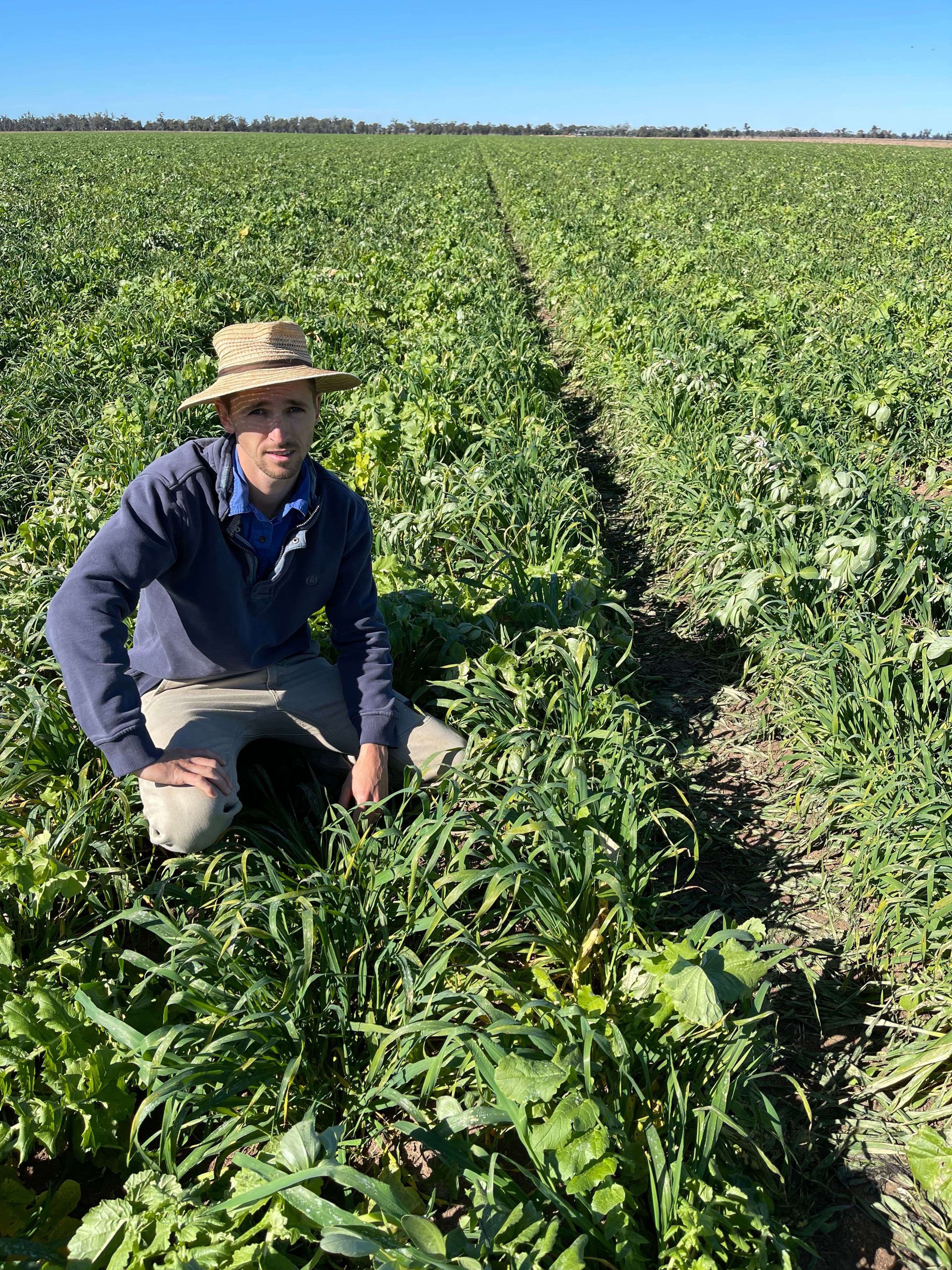
Case study: Parasitoids deployed by planes to protect crops! (Part 2)
9 February 2024

Sam Ward
Our previous article described how Crop Capsules are being used to control unwelcome critters. But is this novel idea as good as it sounds? We spoke with Dean Hamblin, a client of Crop Capsules and a crop consultant for the Lower Namoi at Outlook Ag, based in Wee Waa. Dean works mostly with intensive irrigation farming systems, with many of the farms comprising mixed cropping systems with rotations of cotton, corn, legumes, cereals, and canola.
Dean’s expertise lies in the effective integration of Crop Capsules product within his pest management strategies, addressing challenges across a diverse range of crops, including cotton, corn, legumes, cereals, and canola. His major pest challenges include Heliothis (Helicoverpa spp.) and aphids in canola and silverleaf whitefly, mirids and stink bugs in cotton.
Dean’s commitment to Integrated Pest Management (IPM) underscores his dedication to maintaining a balance between pests and beneficial insects in the field. His proactive approach revolves around sustainable solutions, steering clear of excessive reliance on chemical sprays.
Dean has had success using Crop Capsules’ products to combat whiteflies. He says “I have been using Crop Capsules’ to distribute Eretmocerus hayati on my clients’ and family farms right from the early days of development. I began using E. hayati 6-7 years ago using drones and then moved to the Crop Capsules’ product 4 years ago when it was developed.”

Previously experimenting with drones for similar purposes, Dean encountered control issues towards the end of applications. In contrast, Crop Capsules have proven instrumental in enhancing whitefly population control, consistently preventing them from reaching uncontrollable levels. Dean expressed his gratitude, stating, “I am very thankful for the idea as with the drones we noticed that the efficacy and survivability became a serious issue by the end of the applications, so a better system needed to be developed.”
Integrating parasitoids into farming practices requires careful timing and consideration. The decision-making process involves determining the optimal time for releasing parasitoids. Dean acknowledges the risk involved, stating, ““The process is not simple, it is a balance of finding the best time to “pull the trigger” on when to do a spray and what chemistry you are going to use on those secondary pests. Taking the time to work out what to use and when to use it so that you get the best out of it.” He emphasizes the importance of strategic thinking, stressing that effective pest control goes beyond conventional practices, saying, “It’s not about just relying on the practices you would normally use for pest control; you must think a bit harder about what you should use and when to conserve your beneficials.”

Dean was lucky to receive mentoring from others in the industry, and now shares his own success and views that the future of IPM will include area-wide management of pests using beneficials. The timely use of Crop Capsules’ products has allowed him to avoid additional sprays for the past three years. Additionally, Dean advocates for the use of naturally occurring beneficial insects such as beetles, spiders, lacewings, and thrips, emphasising: “We must make a more conscious effort to monitor for the beneficials and protect them the best we can.”
Dean adopts a forward-looking approach, considering the next 5-10 years when making decisions on farms. He notes that “it's very challenging to get your head around the right balance and being confident to implement that practice.”However, he envisions the future incorporating area-wide management of pests using beneficials. He prioritizes long-term benefits over short-term gains, recognizing that “sometimes [integrated pest management] might not be the cheap and easy option to take but it’s the benefits in the long term that you must consider.”
